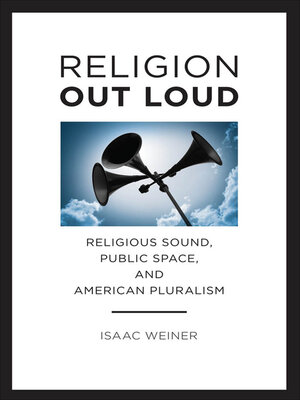Religion Out Loud
ebook ∣ Religious Sound, Public Space, and American Pluralism · North American Religions
By Isaac Weiner

Sign up to save your library
With an OverDrive account, you can save your favorite libraries for at-a-glance information about availability. Find out more about OverDrive accounts.
Find this title in Libby, the library reading app by OverDrive.



Search for a digital library with this title
Title found at these libraries:
| Library Name | Distance |
|---|---|
| Loading... |
For six months in 2004, controversy raged in Hamtramck, Michigan, as residents debated a proposed amendment that would exempt the adhan, or Islamic call to prayer, from the city's anti-noise ordinance. The call to prayer functioned as a flashpoint in disputes about the integration of Muslims into this historically Polish-Catholic community. No one openly contested Muslims' right to worship in their mosques, but many neighbors framed their resistance around what they regarded as the inappropriate public pronouncement of Islamic presence, an announcement that audibly intruded upon their public space.
Throughout U.S. history, complaints about religion as noise have proven useful both for restraining religious dissent and for circumscribing religion's boundaries more generally. At the same time, religious individuals and groups rarely have kept quiet. They have insisted on their right to practice religion out loud, implicitly advancing alternative understandings of religion and its place in the modern world.
In Religion Out Loud, Isaac Weiner takes such sonic disputes seriously. Weaving the story of religious "noise" through multiple historical eras and diverse religious communities, he convincingly demonstrates that religious pluralism has never been solely a matter of competing values, truth claims, or moral doctrines, but of different styles of public practice, of fundamentally different ways of using body and space—and that these differences ultimately have expressed very different conceptions of religion itself. Weiner's innovative work encourages scholars to pay much greater attention to the publicly contested sensory cultures of American religious life.







